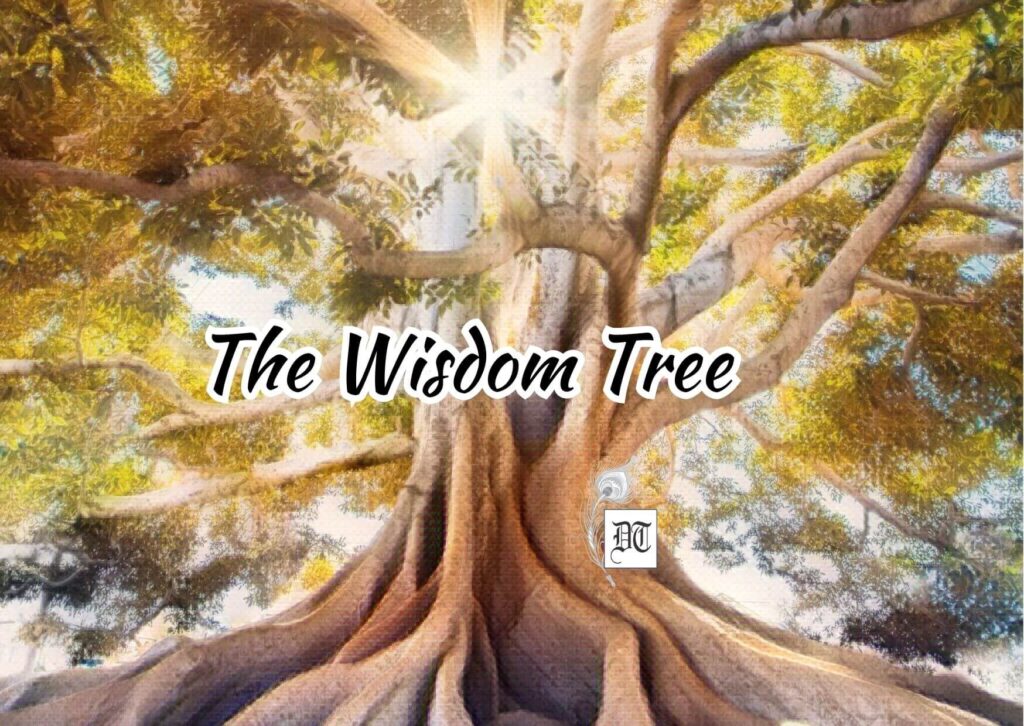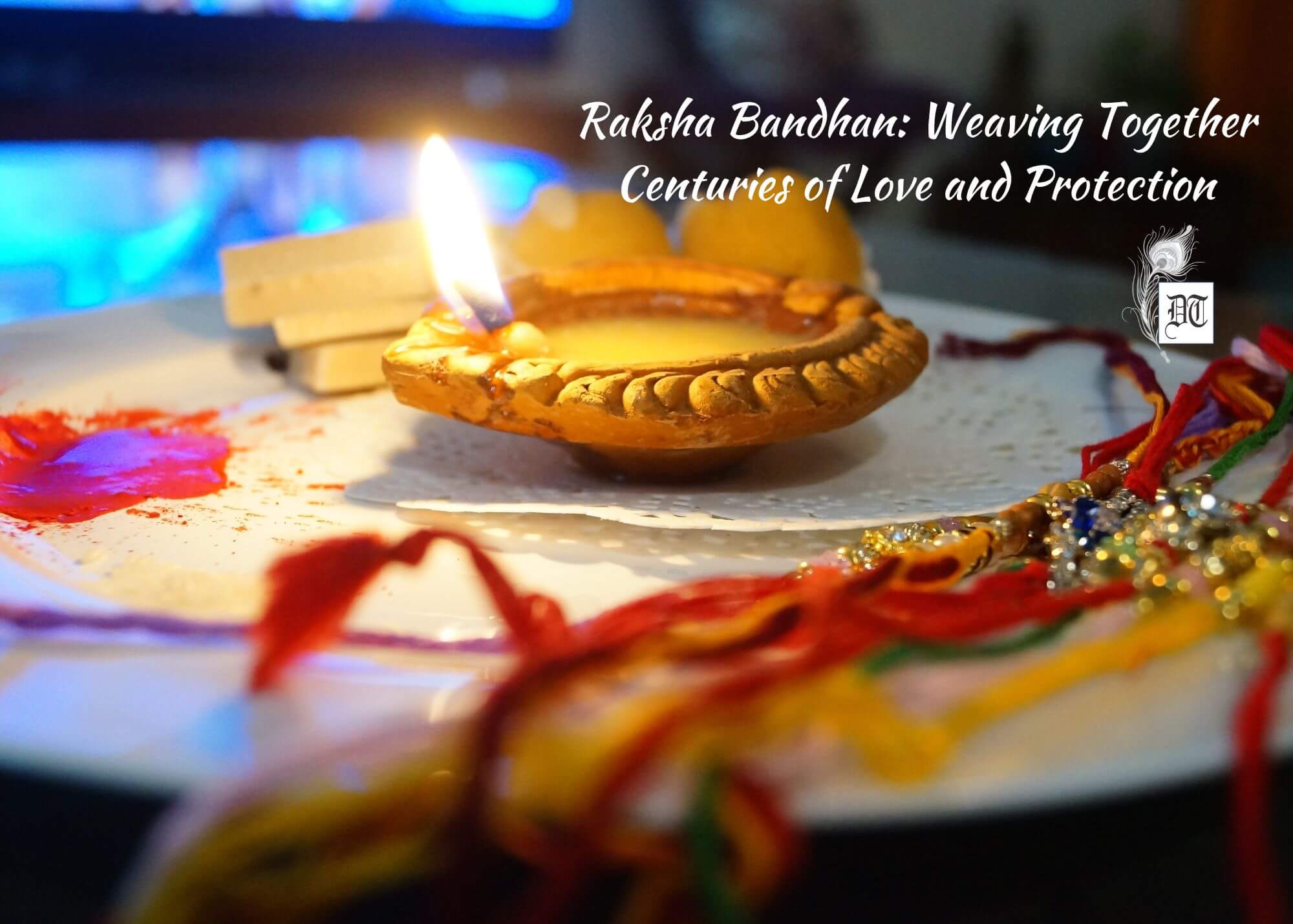Raksha Bandhan commemorates love and unity among Indians, celebrating the enduring bond between siblings from mythical origins to modern expressions, opines Rajul exclusively in Different Truths.

In a jubilant display of affection and kinship, Indians nationwide commemorate the treasured festival of Raksha Bandhan, colloquially known as Rakhi, with unbridled enthusiasm. This revered occasion, which encapsulates the profound connection between siblings, brims with historical significance dating back millennia. As the nation comes together to revel in this age-old tradition, we embark on a journey through time to uncover the captivating chronicles of Raksha Bandhan and their enduring relevance in contemporary Indian society.
Originating from the annals of Indian antiquity, Raksha Bandhan holds an irreplaceable place in the cultural tapestry of the subcontinent. Rooted in the Sanskrit language, “Raksha” signifies protection, while “Bandhan” translates to a bond. The festival’s narrative traces its lineage through epic tales and mythological narratives, underlining its resonance with the fabric of Indian heritage.
While the historical underpinnings of Raksha Bandhan are firmly entrenched in the past, its relevance remains unwavering in modern Indian society. The festival transcends the barriers of time, geography, and generation, embodying the enduring values of love and care between siblings. In contemporary times, Rakhi continues to be a heartfelt occasion where sisters and brothers exchange ornate threads, accompanied by well-wishes for each other’s well-being.
Raksha Bandhan has seamlessly adapted to the evolving dynamics of family relationships.
Furthermore, Raksha Bandhan has seamlessly adapted to the evolving dynamics of family relationships. Beyond the traditional brother-sister pair, the festival now celebrates the diverse spectrum of sibling connections, acknowledging the transformative social changes that have shaped the Indian familial structure. This inclusivity ensures that the essence of Raksha Bandhan remains intact, even in a rapidly changing world.
As the nation reverberates with joy on this auspicious day, the spirit of Raksha Bandhan resounds as a testament to the time-honoured values of love, protection, and unity. The festival not only commemorates the historical past but also serves as a living embodiment of the unbreakable bond between siblings, fostering a sense of togetherness that transcends time and tradition.
Raksha Bandhan stands as a symbol of affectionate bonds that endure the test of time. Its rich historical origins, coupled with its contemporary relevance, make it a cherished celebration that seamlessly blends the past with the present. As the festival’s rituals unfold and threads of love are exchanged, Raksha Bandhan cements itself as a cornerstone of Indian culture, perpetuating the legacy of sibling devotion for generations to come.
Religious and Spiritual Prowess of the “Raksha” Thread
The Raksha thread began to be known as a powerful one through ancient Sanatan scriptures and stories. Demons and Gods were frequently at odds. Demons once defeated Indra in a battle. Moved by her husband’s defeated state, Shachi, Indra’s wife, brought a holy thread and tied it around his right wrist while Vedic mantras were being chanted. The holy thread, which was made of power and love, inspired Indra to defeat the demons.
Rakhi bestows immortality on brothers in a mythological story.
Rakhi bestows immortality on brothers in a mythological story in ancient Indian scripture about Yama, the God of Death, and Yamuna, his sister. Yama had been granted immortality thanks to Yamuna’s Rakhi.
Another significant story associated with Rakhi is that of King Bali and Goddess Lakshmi. According to Hindu scriptures, King Bali, a generous and virtuous ruler, was about to ask for a boon from Lord Vishnu. Seeing this, Goddess Lakshmi, who wanted Lord Vishnu to return to Vaikuntha (his heavenly abode), approached Bali with a Rakhi. King Bali bestowed a boon on her in recognition of her devotion and sincerity, which set Lord Vishnu free. This story symbolises the protection and blessings that a brother promises to provide to his sister when she ties the Rakhi on his wrist.
The Ancient Indian Origins
Raksha Bandhan’s roots might be traced back to ancient Indian civilisation, where it found its first mention in Hindu mythology. The most famous legend associated with Raksha Bandhan revolves around Lord Krishna and Draupadi. According to the Mahabharata, during the great Kurukshetra war, Draupadi tore a strip of cloth from her saree to bandage Krishna’s bleeding wrist after he accidentally hurt himself. Krishna promised to help Draupadi in her hour of need as a result of her kind gesture. This bond of protection and love laid the foundation for the festival we now know as Raksha Bandhan.
Role and Significance of Rakhi in Indian Medieval History
The Rajputs were resisting the Muslim invasion during the medieval period, and after the passing of her spouse, Rana Sanga, Karnavati served as Mewar’s regent throughout her son’s minor years. At that time, Bahadur Shah of Gujarat launched his second assault on Mewar. Karnawati then asked Humayun for help and sent him a Rakhi. Humayun returned to Mewar even though he was engaged in another conflict because Karnawati’s gesture had impacted him. However, Humayun and his soldiers were unable to arrive in time. At Chittoor, the Rajput army was defeated. The queen then did Jauhar (lit herself on fire) to preserve her honour. Shah and his army, however, had to leave Chittoor because Humayun was close by. Vikramjit, the son of Karnavati, received Mewar back.
In-depth research into Indian history uncovers Rakhi’s connection to the 326 BC Battle of Hydadpes between Alexander the Great and Porus.
In-depth research into Indian history uncovers Rakhi’s connection to the 326 BC Battle of Hydadpes between Alexander the Great and Porus. Alexander’s wife Roxana begged Porus to show pity to him in battle when he invaded India in 326 BC by sending him a Rakhi. The Rakhi on Porus’ wrist served as a reminder of Roxana’s plea as he was about to defeat Alexander on the battlefield. As a result, Porus refrained from doing so.
The Festival Evolves
While the festival’s origins are rooted in Hindu mythology, Raksha Bandhan has transcended religious boundaries over the centuries. It has become a celebration of love and protection between siblings, regardless of their faith. In India, where diversity is celebrated, Raksha Bandhan serves as a unifying thread that binds people together.
Historically, Raksha Bandhan was not limited to biological siblings. In medieval times, warriors exchanged sacred threads with women who were not their biological sisters but sought their protection during times of conflict. This tradition emphasised the bond of trust and loyalty between individuals, irrespective of blood relations. In some regions, this practice was also extended to leaders and their subjects, symbolizing a sense of responsibility and protection towards the people.
Raksha Bandhan Through the Ages
As India evolved, so did the celebration of Raksha Bandhan. During the British colonial period, the festival took on a new dimension. It became a symbol of unity and patriotism. Indian women would tie Rakhis to freedom fighters and revolutionaries, seeking their protection in the struggle for independence. This was a powerful expression of solidarity and the belief that these men were like brothers who would protect their sisters (the nation) from oppression.
Post-independence, Raksha Bandhan continued to thrive as a cherished tradition.
Post-independence, Raksha Bandhan continued to thrive as a cherished tradition. It became a day to reaffirm the bond between brothers and sisters. Sisters would prepare elaborate Rakhis, often handmade, to tie on their brothers’ wrists. In return, brothers would offer gifts and promise to protect and support their sisters throughout their lives.
Raksha Bandhan Today
In contemporary India, Raksha Bandhan has retained its cultural significance while adapting to modern lifestyles. The essence of the festival remains unchanged, emphasising the strong emotional bond between siblings. However, the way it is celebrated has evolved.
One noticeable change is the commercialisation of Raksha Bandhan. In today’s consumer-driven world, the exchange of gifts and the purchase of intricately designed Rakhis have become prominent aspects of the festival. While some argue that this commercialisation has diluted the festival’s purity, others see it as a natural progression, reflecting changing times and values.
The festival has also become more inclusive. Rakhi is no longer limited to just brothers and sisters. Friends, cousins, and even neighbours exchange Rakhis as a gesture of friendship and goodwill. In a society where people often move away from their hometowns in search of education and employment, Raksha Bandhan provides an opportunity to strengthen bonds and maintain connections with loved ones.
The Role of Technology
The digital age has brought about significant changes in the way Raksha Bandhan is celebrated. In an era where geographical distances often separate siblings, technology has become a bridge to keep the tradition alive. Sisters can now send Rakhis and gifts to their brothers, even if they are thousands of miles away. Video calls and virtual celebrations have become the norm, allowing families to come together, albeit virtually, and share the joy of Raksha Bandhan.
The hashtag #RakshaBandhan trends on various social media platforms…
The festival has also found its place on social media. People share pictures and videos of their Rakhi celebrations, allowing others to partake in their joy. The hashtag #RakshaBandhan trends on various social media platforms, reflecting the festival’s enduring popularity and its ability to transcend physical boundaries.
The Significance of Raksha Bandhan
In contemporary India, Raksha Bandhan holds multifaceted significance. Beyond its traditional roots, it has taken on new meanings and purposes:
- Celebrating Sibling Bonds: Raksha Bandhan remains a day to honour and celebrate the special bond between siblings. Brothers and sisters have to express their love and affection for each other.
- Gender Equality: Raksha Bandhan has also evolved to reflect changing gender dynamics. Today, sisters tie Rakhis on their brothers’ wrists not just as a symbol of protection but also as a gesture of love and equality. Brothers, in turn, promise to support and protect their sisters in all aspects of life.
- Unity and inclusion: Raksha Bandhan has transcended religious and cultural boundaries. It is a festival that promotes unity and inclusivity, where people from all walks of life come together to celebrate the bond of protection and love.
- Modern Expressions of Love: The exchange of gifts and the commercial aspect of Raksha Bandhan symbolises the modern expression of love and affection. It’s an opportunity to show appreciation and make loved ones feel special.
- Nostalgia and Tradition: Raksha Bandhan serves as a reminder of cherished childhood memories. It reconnects people with their cultural roots and traditions, providing a sense of continuity in an ever-changing world.
Raksha Bandhan… is a testament to the enduring power of love and protection.
Raksha Bandhan, with its rich history and evolving significance, is a testament to the enduring power of love and protection. It has seamlessly adapted to the changing times while retaining its core values. Today, it stands as a celebration of sibling bonds, gender equality, unity, and inclusivity. It is a festival that reminds us of the importance of family, tradition, and the enduring ties that bind us together, making it not just a festival but a timeless thread that weaves the fabric of Indian culture.
Picture design by Anumita Roy






 By
By
 By
By
 By
By